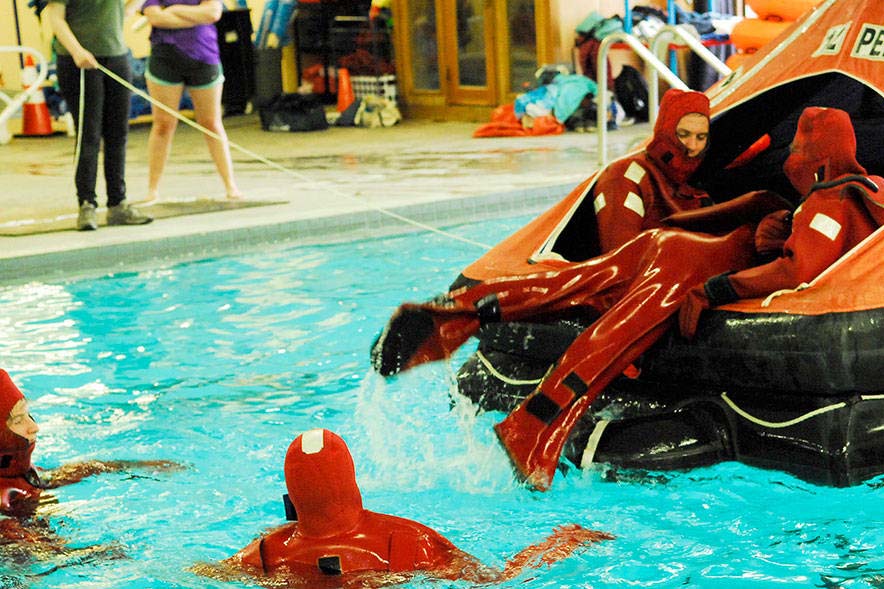This is required by the STCW 2010 code for all mariners with safety or pollution control duties. Basic Training (Basic Safety Training) combines all four elements of basic safety into one program.

The course is thought through a blended program: students will spend 57 hours of blended learning, including 19 hours across 3 days of in-class training. Seafarer’s employed or engaged in any capacity on board ship as part of the ship’s complement with designated duties in the operation of the ship shall, before being assigned, must have completed Basic Training. Successful completion of this course will satisfy:
First Aid/ CPR: First Aid, Drug and Alcohol, Medical Care, Hypothermia, Staying Healthy, Prevention of AIDS
Personal Survival Techniques: SOLAS and LSA Code, Types of emergencies on ships, Personal Lifesaving Equipment, Liferaft Operations, Signaling Equip. and Pyrotechnics, Training and Drills, Helicopter Ops, Rescue Operations and Techniques
Personal Safety & Social Responsibilities: Comply with Emergency Procedures, Prevention of Pollution of the Marine Environment, Observe Safe Working Practices, Effective Communication on Board Ship, Human Relationships on Board Ship, Personal Well-Being on Board
Basic Fire Fighting: Fire Prevention and Safety, FF Organization, Fire Safety Arrangements, Detection System & Alarms, Fire Extinguishing Appliances & System and Procedures

Upon registration, courses are conveniently accessible online for candidates to participate at their own pace and on their own schedule.